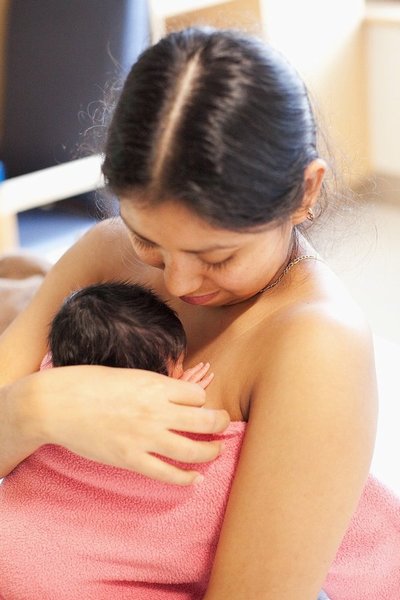November 19, 2009
UW Medical Center awarded prestigious Baby-Friendly designation
UW Medical Center was recently awarded the international designation of a Baby-Friendly birth facility. It is the first medical center in Seattle to receive this recognition.
Baby-Friendly is a global program sponsored by the World Health Organization and the United Nations Children’s Fund (UNICEF) created to encourage and recognize health care facilities that offer an optimal level of care for breastfeeding mothers and their babies.
This designation, based on the “Ten Steps to Successful Breastfeeding,” is significant to patient care because it helps mothers and babies become more successful at breastfeeding. When hospitals practice even six or seven of the steps, mothers are six times more likely to achieve their intention to exclusively breastfeed compared to mothers who gave birth in a hospital that didn’t practice these steps.
“Breastfeeding matters to nearly every aspect of health and well-being for infants and families,” said Isabella Knox, UW associate professor of pediatrics, Division of Neonatology, “and exclusive breastfeeding is the ideal.” Knox is a physician specializing in the care of newborns
Formula feeding is associated with an increased risk for many diseases, including ear infections, respiratory tract infections, certain skin inflammations, digestive problems, type 2 diabetes, sudden infant death syndrome and obesity.
In addition to its many benefits for babies, breastfeeding also is associated with health benefits to women, including decreased risk for type 2 diabetes, ovarian cancer, and breast cancer.
To be awarded the Baby-Friendly designation, every health care site must implement and adhere to 10 criteria, including:
- Educating staff and informing all mothers of the benefits of breast feeding.
- Ensuring that mothers have skin-to-skin contact with their babies within 30 minutes of birth.
- Walking mothers through breastfeeding techniques within an hour of delivery and again offering support at subsequent feedings.
- Discouraging the use of formula for breastfeeding babies.
- Not allowing formula companies to supply free formula to the hospital or in discharge packs.
- Ensuring that babies are not given bottles or pacifiers while in the hospital.
“Most mothers can make more than enough milk for their babies. The baby’s sucking stimulates the mother’s hormones to establish an abundant production of milk. The problem with giving formula is that it undermines this delicate balance of supply and demand,” said Ginna Wall, Lactation Services coordinator for UW Medical Center.
Skin-to-skin contact is critical as it promotes connection. A mother’s skin and scent encourage the baby to find the breast and suckle.
“One of the best ways for babies to warm up and mothers to learn feeding cues is to put babies in ‘Kangaroo Care,’ with the babies wearing nothing but their little diapers, and let them soak up their mother’s skin,” noted Christine Adams, a nurse and clinical educator for the Maternity and Infant Center at UW Medical Center.
Once the facility has implemented these criteria, an outside agency performs a rigorous on-site evaluation to determine Baby-Friendly certification.
More than 19,000 health care facilities around the globe have received the Baby-Friendly designation, including 84 hospitals and birth centers in the United States.
UW Medical Center is part of the UW Medicine academic health system, which also includes Harborview Medical Center, UW Medicine Neighborhood Clinics, Airlift Northwest, the School of Medicine and UW Physicians.

